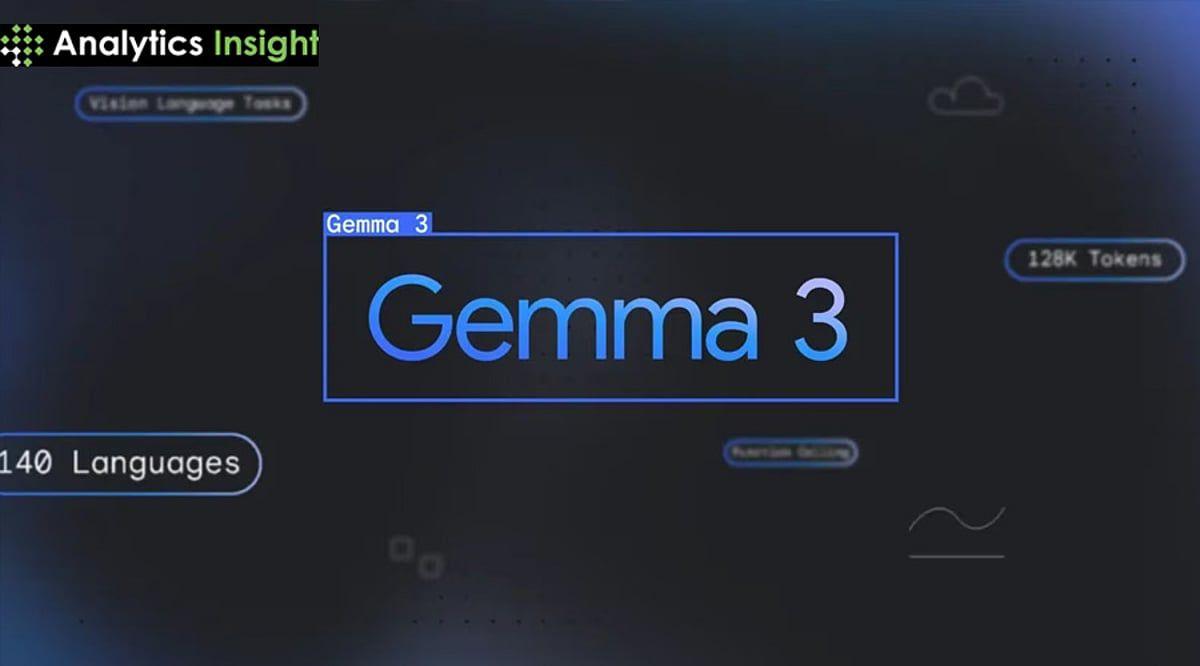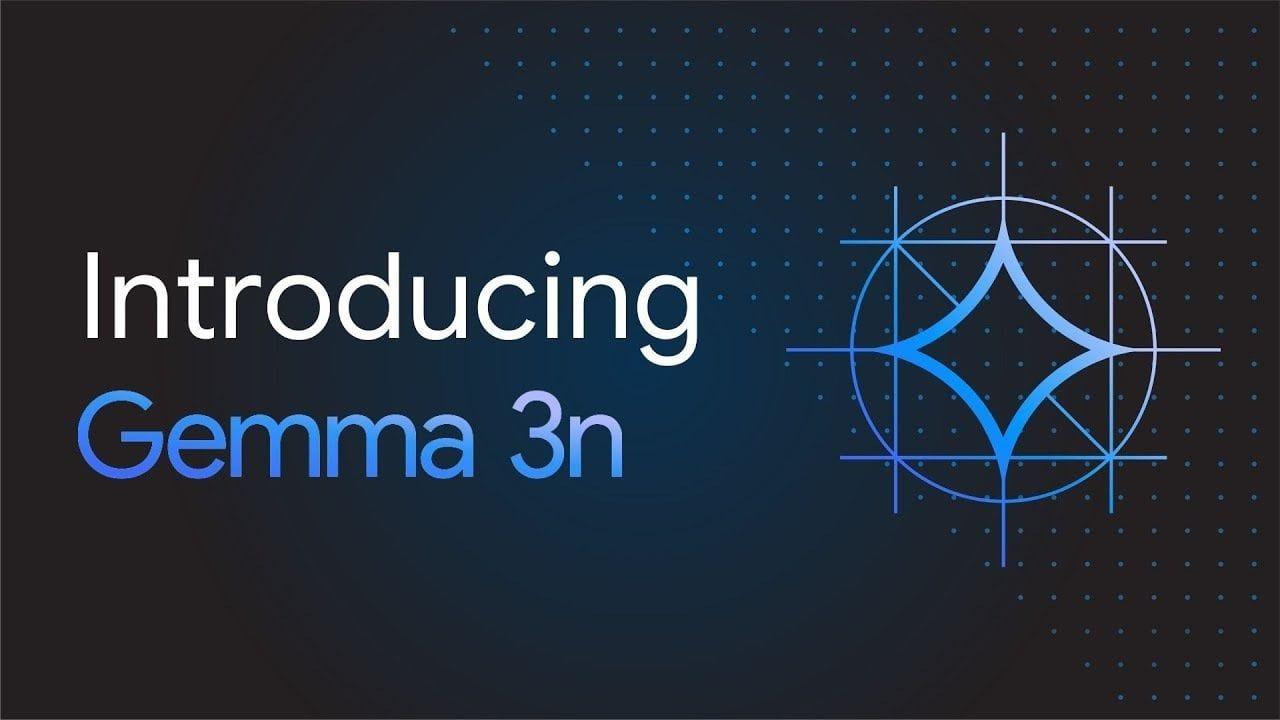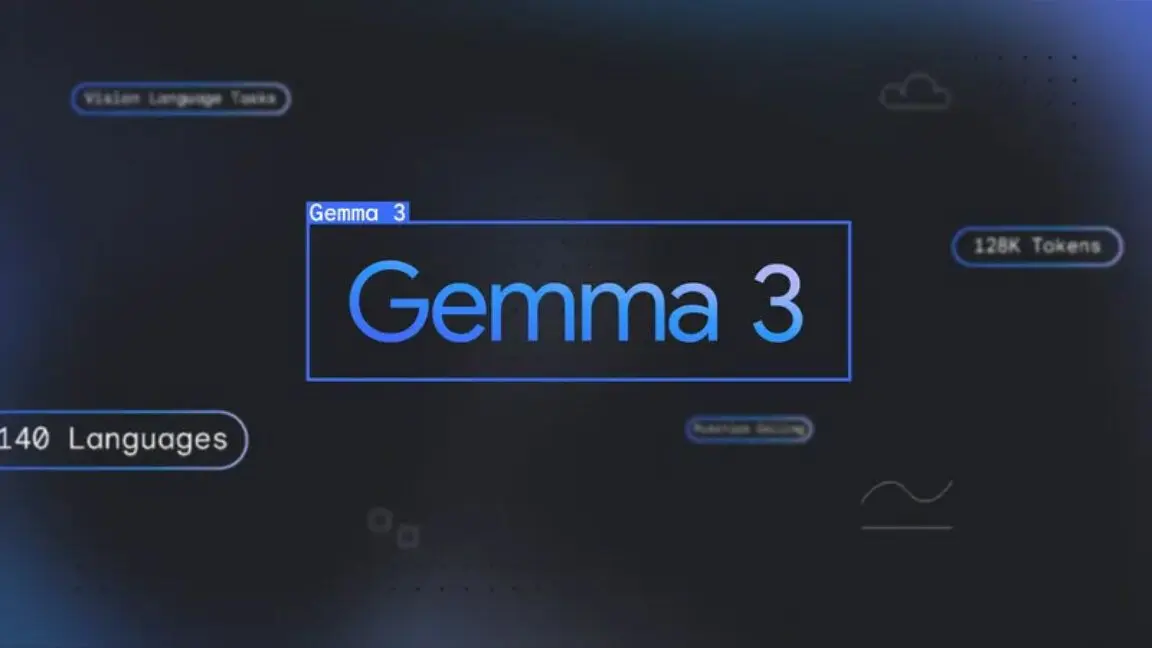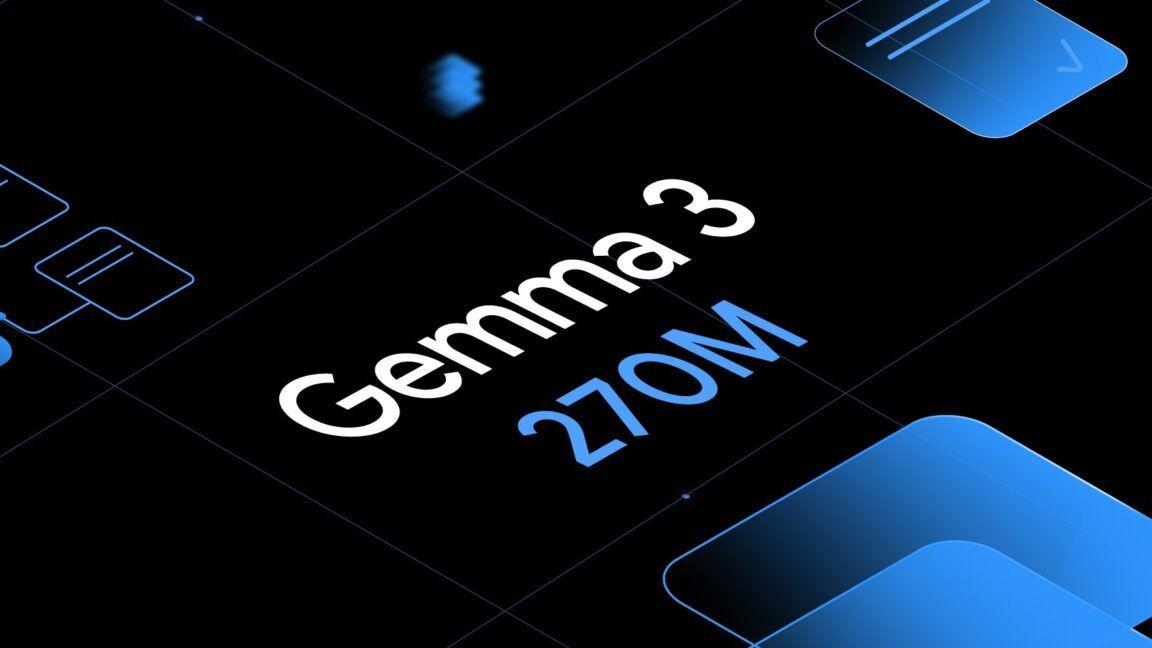Google Unveils Gemma 3n: A Breakthrough in On-Device AI for Resource-Constrained Devices
3 Sources
3 Sources
[1]
Can Google's tiny Gemma 3n AI really run smoothly on any device?
Google unveiled Gemma 3n, the latest addition to its open AI model family, at Google I/O 2025 on Tuesday. This model is designed to run smoothly on resource-constrained devices such as phones, laptops, and tablets, even those with less than 2GB of RAM, starting in preview from Tuesday. Gemma 3n's efficiency allows it to operate offline without cloud computing, reducing costs and preserving privacy by eliminating the need to transfer data to remote servers. Gus Martins, Gemma Product Manager, highlighted that Gemma 3n shares the same architecture as Gemini Nano, emphasizing its engineering for "incredible performance." In conjunction with Gemma 3n's release, Google is introducing MedGemma through its Health AI Developer Foundations program. Described as the company's most capable open model for analyzing health-related text and images, MedGemma is designed to work seamlessly across various image and text applications, enabling developers to adapt it for their health apps. Martins elaborated, "MedGemma [is] our collection of open models for multimodal [health] text and image understanding... so that developers can adapt the models for their own health apps." On the horizon is SignGemma, an open model trained to translate sign language into spoken-language text, with a particular proficiency in American Sign Language (ASL) and English. This model aims to facilitate the creation of new apps and integrations for deaf and hard-of-hearing users. As Martins noted, "SignGemma is... the most capable sign language understanding model ever, and we can't wait for... developers and deaf and hard-of-hearing communities to take this foundation and build with it." Despite Gemma's popularity, with tens of millions of downloads, the platform has faced criticism over its custom, non-standard licensing terms, which some developers view as a commercial risk. Nonetheless, this hasn't hindered the models' widespread adoption.
[2]
Gemma 3N: Google's Latest Mobile-First AI Model for On Device AI Apps
What if your smartphone could process complex AI tasks in real-time, without draining its battery or relying on the cloud? Enter Gemma 3N, the latest breakthrough in mobile-first artificial intelligence from Google for Developers. This innovative model promises to redefine how we interact with technology, offering a seamless blend of efficiency, flexibility, and performance -- all optimized for on-device use. Whether it's powering instant voice recognition, allowing smarter virtual assistants, or enhancing accessibility tools for diverse users, Gemma 3N is poised to set a new standard for mobile AI. But does it truly deliver on its bold claims, or is it just another incremental update? In this analysis, we'll explore how this AI model stacks up against its ambitious promise to transform mobile experiences. From its dynamic 2-in-1 architecture to its ability to process multimodal inputs like text, images, and audio, Gemma 3N is packed with features that developers and users alike will find compelling. This review will unpack the key innovations behind the model, including its memory-efficient design and dual operational modes, which cater to both high-performance and real-time applications. We'll also examine how its focus on accessibility and inclusivity ensures that even older devices can harness its power. Whether you're a developer looking to build the next-generation app or a tech enthusiast curious about the future of AI, Gemma 3N offers plenty to explore -- and perhaps even challenge your expectations of what mobile AI can achieve. Gemma 3N is engineered to deliver high-quality AI performance in a compact, efficient design that prioritizes on-device processing. By eliminating the reliance on cloud-based systems, it ensures seamless application performance while maintaining user privacy. Its standout features include: These features unlock opportunities for innovative applications, such as smarter virtual assistants, more intuitive user interfaces, and tools that enhance accessibility for diverse audiences. Gemma 3N is carefully designed to maximize performance on mobile processors, even on devices with limited computational resources. Its architecture is optimized to reduce memory usage while delivering faster processing speeds, making it ideal for real-time applications. Examples of its practical use include: The model's memory efficiency is a defining characteristic, minimizing resource consumption to ensure applications remain fluid and responsive. This not only improves the overall user experience but also extends battery life -- an essential consideration for mobile devices. By balancing performance and resource efficiency, Gemma 3N sets a new benchmark for on-device AI. Discover other guides from our vast content that could be of interest on on-device AI. At the core of Gemma 3N is its innovative 2-in-1 "mat former" architecture, which incorporates an embedded submodel. This dynamic design allows the AI to switch seamlessly between two operational modes: This adaptability is achieved without increasing memory overhead, making sure the model remains lightweight and efficient. For instance, a photo editing app could use the high-quality mode for intricate image adjustments while employing the faster mode for real-time previews. This dual-mode capability enables developers to create versatile applications that balance performance demands with resource constraints. Gemma 3N is designed to empower developers by providing a flexible and open framework for experimentation and innovation. Whether targeting Android, Chrome, or other mobile platforms, this model equips developers with the tools needed to build innovative applications. Key advantages for developers include: For example, developers can design applications that combine voice commands with visual feedback or create tools that transition effortlessly between textual and video-based inputs. This flexibility encourages the development of innovative solutions that push the boundaries of mobile AI. Gemma 3N is not just a technological innovation -- it is a practical solution designed for real-world deployment. Insights from the Android, Chrome, and Pixel teams have informed its development, making sure it meets the needs of a wide range of users and applications. Its robust design makes it suitable for both consumer-facing apps and enterprise solutions. A key focus of Gemma 3N is accessibility. Its efficient design ensures that even users with older or less powerful devices can benefit from its advanced features. By providing widespread access to AI capabilities, Gemma 3N enables developers to create impactful applications that are both innovative and inclusive. This commitment to accessibility ensures that innovative technology is available to a broader audience, fostering a more equitable digital landscape. Gemma 3N establishes itself as a milestone in mobile-first AI technology. With its exceptional performance, memory efficiency, and dynamic architecture, it redefines what is possible for on-device AI. For developers, it offers a powerful and flexible platform to create applications that are practical, accessible, and efficient. Seamlessly integrating with Android and Chrome platforms, Gemma 3N paves the way for a future where advanced AI capabilities are accessible to everyone, driving innovation and enhancing everyday experiences.
[3]
Gemma 3n: Google's Lightweight AI Model for Text, Image, and Video Processing
Google I/O 2025 event brought offline AI for phones with Gemma models' launch: Check details! Google has launched the latest addition to its family of 'open' AI models, Gemma 3n. It was unveiled during the Google I/O 2025 event. Designed with portability in mind, Gemma 3n is built to run smoothly on phones, tablets, and laptops, even those with under 2GB of RAM. The model is now available in preview starting today. Google says Gemma 3n can process audio, text, images, and videos. It brings multimodal capabilities to edge devices without relying on cloud processing. This is a significant leap toward lightweight, on-device AI that is cost-effective and privacy-conscious. "Gemma 3n shares the same architecture as Gemini Nano and is engineered for incredible performance," said Gus Martins, Product Manager for Gemma, during the I/O keynote.
Share
Share
Copy Link
Google introduces Gemma 3n, a lightweight AI model designed to run efficiently on phones, tablets, and laptops with limited RAM, offering multimodal capabilities without cloud dependence.
Google Introduces Gemma 3n: A New Frontier in On-Device AI
At Google I/O 2025, the tech giant unveiled its latest innovation in artificial intelligence: Gemma 3n. This new addition to Google's open AI model family is designed to revolutionize on-device AI processing, particularly for resource-constrained devices
1
.
Source: Dataconomy
Efficient Performance on Limited Hardware
Gemma 3n is engineered to operate smoothly on a wide range of devices, including phones, tablets, and laptops, even those with less than 2GB of RAM. This remarkable efficiency allows for offline AI processing without relying on cloud computing, significantly reducing costs and enhancing privacy by eliminating the need for data transfer to remote servers
1
.Gus Martins, Gemma Product Manager, emphasized that Gemma 3n shares the same architecture as Gemini Nano, highlighting its "incredible performance" capabilities
3
.Multimodal Capabilities
One of Gemma 3n's standout features is its ability to process multiple types of data, including audio, text, images, and videos. This multimodal functionality brings advanced AI capabilities to edge devices without the need for cloud processing, marking a significant step towards more versatile and privacy-conscious AI applications
3
.
Source: Analytics Insight
Innovative Architecture for Flexibility
At the core of Gemma 3n is a unique 2-in-1 "mat former" architecture with an embedded submodel. This design allows the AI to switch between two operational modes: a high-quality mode for complex tasks and a faster mode for real-time applications. This adaptability is achieved without increasing memory overhead, ensuring the model remains lightweight and efficient
2
.Specialized Models for Healthcare and Accessibility
Alongside Gemma 3n, Google introduced two specialized models:
-
MedGemma: Launched through the Health AI Developer Foundations program, MedGemma is described as Google's most capable open model for analyzing health-related text and images. It's designed to work across various image and text applications, allowing developers to adapt it for their health apps
1
. -
SignGemma: This open model is trained to translate sign language into spoken-language text, with a particular focus on American Sign Language (ASL) and English. SignGemma aims to facilitate the creation of new apps and integrations for deaf and hard-of-hearing users
1
.

Source: Geeky Gadgets
Related Stories
Implications for Developers and Users
Gemma 3n provides developers with a flexible and open framework for experimentation and innovation. Its compatibility with Android, Chrome, and other mobile platforms, coupled with its efficient design, opens up new possibilities for creating innovative applications that balance performance demands with resource constraints
2
.For users, Gemma 3n promises to enhance everyday experiences by enabling more intelligent and responsive applications, even on older or less powerful devices. This focus on accessibility ensures that advanced AI capabilities are available to a broader audience, potentially fostering a more equitable digital landscape
2
.Challenges and Adoption
Despite Gemma's popularity, with tens of millions of downloads reported, the platform has faced some criticism over its custom, non-standard licensing terms. Some developers view these terms as a potential commercial risk. However, this concern doesn't seem to have significantly hindered the models' widespread adoption
1
.References
Summarized by
Navi
[3]
Related Stories
Google's Gemma 3n: A Breakthrough in On-Device AI with Open-Source Multimodal Capabilities
27 Jun 2025•Technology

Google Unveils Gemma 3: A Powerful, Efficient AI Model for Single-GPU Applications
12 Mar 2025•Technology

Google Unveils Gemma 3 270M: A Compact AI Model Revolutionizing On-Device AI
15 Aug 2025•Technology

Recent Highlights
1
Google Gemini 3.1 Pro doubles reasoning score, beats rivals in key AI benchmarks
Technology

2
Meta strikes up to $100 billion AI chips deal with AMD, could acquire 10% stake in chipmaker
Technology

3
Pentagon threatens Anthropic with supply chain risk label over AI safeguards for military use
Policy and Regulation





